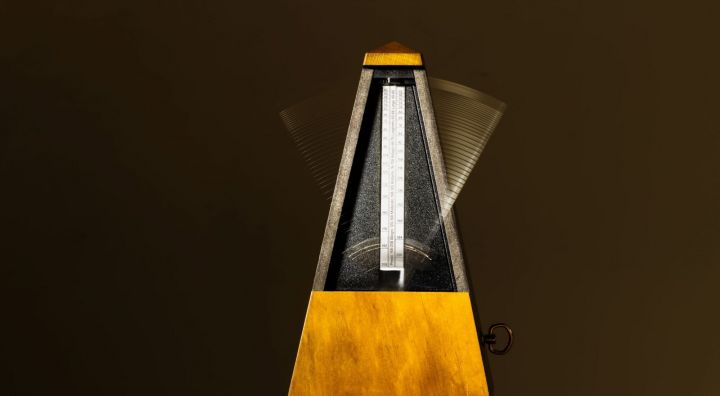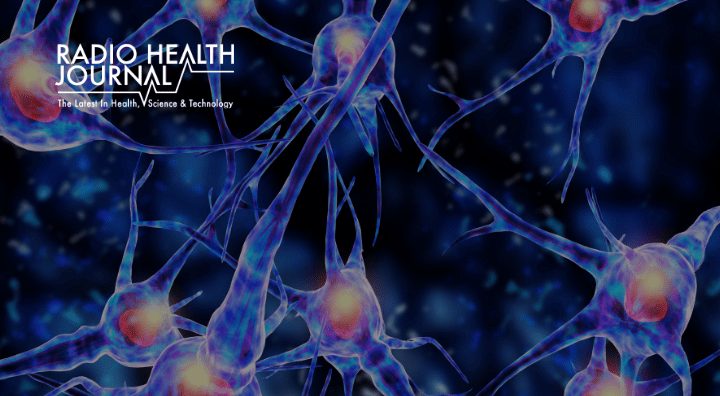Experts discuss symptoms and treatments of Ménière’s disease, an often misdiagnosed disorder producing loss of hearing and crippling vertigo.
Guest Information:
- James Raath, business consultant and author, Love Mondays
- Dr. David Friedland, Professor and Vice Chair, Otolaryngology and Communication Sciences, Medical College of Wisconsin
Links for more info:
16-15 Ménière’s Disease
Nancy Benson: About 35 years ago, when British businessman James Raath was 24, he noticed his hearing starting to fade in his left ear.
James Raath: It took probably 3-4 years for the hearing to be lost completely but it happened gradually and because it happened gradually, I was able to adjust.
Benson: Today Raath is an author as well as a successful consultant, whose new book is called Love Mondays. But he had a few bumps on the way. When he was 50, what he experienced decades earlier in his left ear attacked his right one. But this time, it was much worse.
Raath: When I lost the hearing in my right ear, it happened literally overnight. It was absolutely catastrophic to me. It was accompanied by some really terrible symptoms: regular vertigo attacks, which leave you completely bedridden. I mean the entire world around you is literally spinning so that you’re unable to stand upright and then, with that, you feel terribly, terribly ill and a constant tinnitus in the ears. It really puts you down very badly.
Benson: It took Raath years to get a hearing aid powerful enough to allow him to function with less than 10 percent of his hearing in one ear. And he was plagued with attacks of vertigo that came without warning.
Raath: You really have to ride it out. Sometimes the vertigo symptoms stay for a few minutes, but I have had them for hours on end. I have had them for 5, 6, 7 hours and so you have no other option but to get on to bed and simply lie there and not move and you just have to ride it out really. So, I’m always weary, I mean, I’ve had one for example, a massive vertigo attack right in the middle of a bank. I was talking to a banker and it just hit me: you vomit because your world is spinning, it’s just terrible. The poor customers in the bank thought I was drunk.
Benson: What Raath really had is Ménière’s disease.
Friedland: Ménière’s disease is commonly diagnosed but is actually quite uncommon.
Benson: That’s Dr. David Friedland, Professor and Vice Chair of Otolaryngology and Communication Sciences at the Medical College of Wisconsin.
Friedland: Many primary care physicians have heard of Ménière’s disease as a disorder causing dizziness and associated with tinnitus. Tinnitus is a ringing in the ear. Ménière’s disease has those features but there are 50 million people in this country with tinnitus and there are probably an almost equal amount who experience vertigo or dizziness on some occasion. But just because a person has both of those does not mean they have Ménière’s disease. There are many, many other disorders that are much more common that can cause one or both of those symptoms.
Benson: Friedland says Ménière’s disease is a disorder of the inner ear and would be treated completely differently than any of the diseases that may be mistaken for it.
Friedland: So the inner ear has two different chambers containing two different important types of fluid. They’re important for the function of both the balance and the auditory system. The inner compartment of that is regulated by a sac called the endolymphatic sac. We’re not really sure if a disorder in Ménière’s disease is that the endolymphatic sac produces too much fluid or that the endolymphatic sac fails to absorb enough fluid. In either case, what happens is that center compartment of the inner ear builds up fluid pressure. When the pressure gets high enough, the delicate membrane separating one chamber from another will rupture and the fluids will mix and that typically causes an acute attack of vertigo and causes an acute drop in hearing.
Benson: The vertigo and hearing loss of Ménière’s disease occur episodically, and attacks often occur in clusters. Then sufferers may be completely normal for months at a time. Experts believe each attack ends when the membrane between the two chambers of the ear repairs itself within a few hours.
Friedland: After that occurs, typically the vertigo attack will be over and the drop in hearing may or may not improve but the sudden episode will be done. Over time, having this occur within the delicate inner ear repeatedly causes damage. So whereas in the early stages, people may recover up to a normal baseline. With time, ultimately this is going to cause damage and there may be ultimately a progressive loss of hearing and a progressive weakness in the balance system. This is kind of like taking two steps forward and three steps back. You ultimately keep going backwards.
Benson: Ménière’s disease often attacks only one ear at a time, but as was the case with James Raath, people who’ve had it in one ear are at a higher risk of later having it in the other. Friedland says allergies sometimes appear to be a trigger, so allergy medications are a common treatment to start. A low salt diet and water pills may also help.
Friedland: The inner ear for interesting reasons, functions almost like the kidney. So things that work on the kidney or are healthy for the kidney can affect the inner ear. So low salt tends to reduce the fluid pressure build-up within the inner ear. And the use of a water pill, which is typically used for high blood pressure, can also reduce the fluid pressure within the inner ear.
Benson: If those treatments don’t work, Friedland says there are other ways to alter the fluid imbalance and correct the malfunctioning balance system. Surgery can create more room for the sac of the inner ear to expand, reducing the pressure inside or doctors can install a shunt to drain excess fluid. Those procedures often correct hearing loss as well. A second approach is called ablative therapy.
Friedland: The ablative methods actually take away the balance function in the ear. So we’re kind of killing off the balance cells within the inner ear. A goal there is that if the fluid fluctuates within the inner ear, there is no balance for it to stimulate and therefore people can’t get vertigo. So it doesn’t actually change the disease process, it changes the balance system so that it can’t be stimulated by the disorder. One of the ways we can do that is with a medication called gentamisin. Gentamisin is an antibiotic that is toxic to the balance part of the inner ear. In the clinic, we can inject gentamisin behind the eardrum and let it sit there for about 30 minutes. It then soaks into the inner ear and within about a week, it can kill off most of the balance system. That is a very, very effective means of treating Ménière’s disease because patients typically don’t get vertigo after the balance system has been killed off in that manner.
Benson: Surgeons can also cut the nerve to the balance system in one ear but Friedland admits killing off the balance system has to be considered with caution.
Friedland: There are certain precautions and certain things we want to make sure of. One of those is that we’re not dealing with bilateral disease. If we kill the balance system in one ear, the other ear can accommodate for 95% of that function, so most people can actually do quite well if we knock off the balance system in one ear. But if they develop Ménière’s disease in the other ear and it’s the only useful ear, treatment becomes much more difficult. So ablative therapies need to be couched in terms of what is the function on the other ear? And is the person going to develop Ménière’s disease in that ear? I am much more cautious with ablative therapies in a very young patient because I don’t know what’s going to happen to the other ear in the next 40, 50, or 60 years.
Benson: Those treatments may seem drastic, but Friedland says vertigo can be completely disabling. If all treatments are considered, he says Ménière’s disease can be successfully treated in almost all cases.
You can find out more about all our guests on our website, radiohealthjournal.net. Our production director is Sean Waldron. I’m Nancy Benson.
Sign up to receive email updates
Enter your name and email address below and I’ll send you periodic updates about the podcast.











Leave a Reply